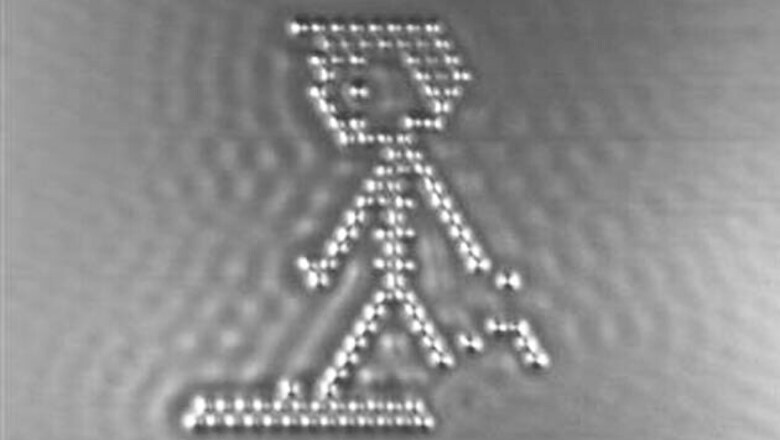
views
New York: Scientists have taken the idea of a film short down to new levels. Molecular levels.
IBM says it has made the tiniest stop-motion movie ever - a one-minute video of individual carbon monoxide molecules repeatedly rearranged to show a boy dancing, throwing a ball and bouncing on a trampoline.
Each frame measures 45 by 25 nanometers - there are 25 million nanometers in an inch - but hugely magnified, the movie is reminiscent of early video games, particularly when the boy bounces the ball off the side of the frame accompanied by simple music and sound effects.
The movie is titled A Boy and His Atom.'
Videos showing atoms in motion have been seen before but Andreas Heinrich, IBM's principal scientist for the project, said Tuesday this is the first time anything so small has been maneuvered to tell a story.
"This movie is a fun way to share the atomic-scale world," Heinrich said. "The reason we made this was not to convey a scientific message directly, but to engage with students, to prompt them to ask questions."
Jamie Panas of Guinness World Records said Guinness certified the movie as 'Smallest Stop-Motion Film.'
IBM used a remotely operated two-ton scanning tunneling microscope at its lab in San Jose, Calif., to make the movie earlier this year. The microscope magnifies the surface over 100 million times. It operates at 450 degrees below zero Fahrenheit (268 degrees below zero Celsius).
The cold 'makes life simpler for us,' Heinrich said. "The atoms hold still. They would move around on their own at room temperature."
Scientists used the microscope to control a tiny, super-sharp needle along a copper surface, IBM said. At a distance of just 1 nanometer, the needle physically attracted the carbon monoxide molecules and pulled them to a precisely specified location on the surface.
The dots that make up the figures in the movie are the oxygen atoms in the molecule, Heinrich said.
The scientists took 242 still images that make up the movie's 242 frames.
Heinrich said the techniques used to make the movie are similar to what IBM is doing to make data storage smaller.
"As data creation and consumption continue to get bigger, data storage needs to get smaller, all the way down to the atomic level," he said.
####




















Comments
0 comment